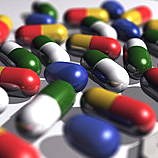(BRUSSELS) – The EU is to bring out a new action plan next year to combat antimicrobial resistance – the ability of micro-organisms to resist antimicrobial treatments, especially antibiotics.
Antimicrobial Resistance is the ability of microorganisms to resist antimicrobial treatments, especially antibiotics.
Health Commissioner Vytenis Andriukaitis, announcing the plan at a conference in Vilnius, said: “The EU has always been at the forefront in the fight against Antimicrobial resistance and this will remain an important priority for the Commission beyond 2016.”
The new Action Plan will take the form of a Commission communication to the European Parliament and the Council and builds on the previous plan that is coming to an end in 2016.
A Commission evaluation of the 2011-2016 Action Plan shows that there is clear added value that the EU can bring to the fight against AMR.
The Commission says the new Action plan will focus on supporting EU Member States, particularly in establishing, implementing and monitoring their National Action Plans and strengthening its leading role in global fora, notably within the international organisations and with major trade partners. The plan will also bring together EU funds and instruments in order to promote innovation and research against AMR.
Commissioner for Research, Science and Innovation, Carlos Moedas, said: “Since 1999, the EU has invested over 1 billion in research projects to tackle the public threat of antimicrobial resistance. Soon, we will announce the winner of the 1 million Horizon prize that addresses the issue of unnecessary use of antibiotics.”
AMR not only has a direct impact on human and animal health – due to the failure in the treatment of infectious diseases – but also carries a heavy economic cost. AMR is responsible for more than 25 000 deaths per year in Europe alone.
It is estimated that the cost of inaction could result in 10 million deaths globally per year and a cumulative loss of over EUR 88 trillion to the world economy by 2050.
AMR is a natural phenomenon but an accumulation of factors, including excessive and inappropriate use of antimicrobial medicines on humans and animals and poor infection control practices, transformed AMR into a serious threat to public health worldwide. This has led to increased healthcare costs, prolonged hospital stays treatment failures and a significant number of deaths.



